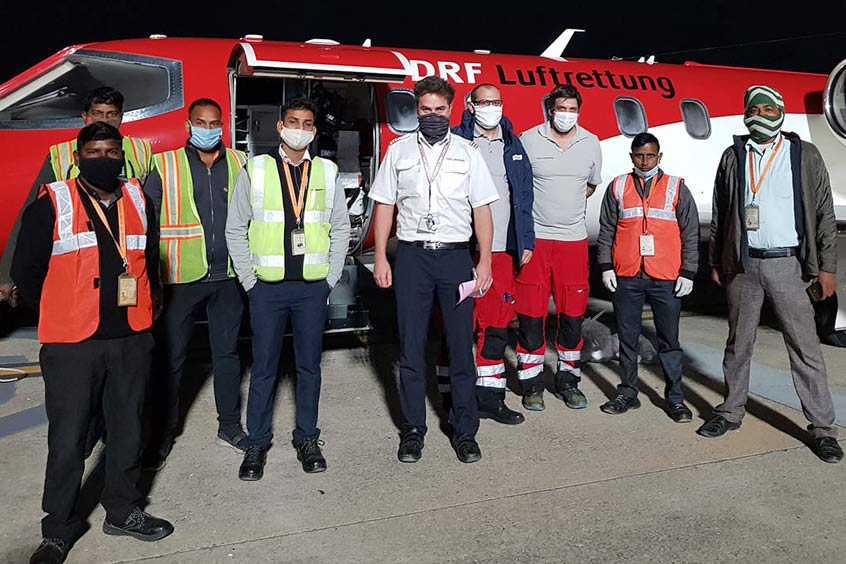Why visit ACE ’25?

At the beginning of November, the crew of a Learjet 35 operated by German air ambulance provider DRF Luftrettung was alerted to an operation that was unusual in terms of the distance covered, the medical indication for the patient and the coronavirus pandemic.
A middle-aged patient had been diagnosed with a malignant, life-threatening disease of the lymphatic system. The treatment options in Laos were not sufficient, so it was decided he should be transported to a specialist English clinic as quickly as possible. Due to the capabilities of its ambulance jets, the operations centre of DRF Luftrettung was asked to fulfil this order, ensuring consistent, high-quality care for the patient, whose condition made it necessary to dispense medication via a nebuliser mask and to be continuously supplied with oxygen during the flight.
In addition to the usual preparations for retrieval, measures were also taken in this case to meet the stricter entry requirements due to the pandemic. Obtaining the required authorisations was more difficult than usual. The good planning and preliminary discussion by the investigating doctors and DRF Luftrettung's operations centre paid off, making the logistical planning and medical equipment of the jet easier. The crew, consisting of three pilots (Miles Bennett, Michael Bobe and Christian Schaub), as well as the medical staff, emergency doctor Marco Baderschneider and paramedic Klaus Grimm, were ready to go with detailed information and the necessary equipment.
In advance, COVID-19 tests had to be organised for the crew as quickly as possible, because entry into Laos was only permitted with negative results. These were even required at an airport where only a stopover was planned for refuelling. The crew could not have left the Learjet without a negative test result.
At 12 noon, the aircraft took off from Karlsruhe/Baden-Baden airport and arrived at the destination airport, 9,200 kilometres away, after a flight time of 12 hours, 45 minutes and refuelling stops in Turkey, Turkmenistan and India.
At the destination airport in Laos, the entire crew had to undergo another COVID-19 test. A hotel room quarantine was then imposed on all crew members; leaving the room was not permitted until the return flight on the following day.
The transport to Europe took place on the same route and, in addition to the three refuelling stops, required an exchange of the crew at Karlsruhe/Baden-Baden airport in order to ensure the onward flight to the clinic in England. The total flight time was 13 hours and 30 minutes. “By nebulising various drugs, the patient's shortness of breath could be significantly improved. Furthermore, appropriate medication was administered intravenously to complete the therapy,” reports Grimm.
Despite the extraordinary circumstances described, the professional organisation skills of all those involved made it possible in these turbulent times to carry out the mission and to bring the patient to the clinic that was suitable for him, to ensure adequate medical treatment.
“It was a wonderful feeling for all of us to be able to hand over the patient to the specified clinic in a stable condition,” recalls Schaub. “It was nice to see that even, or especially, in these difficult times of the current pandemic, all those involved acted as an excellent team and that we were able to guarantee a smooth and gentle flight for the patient.”